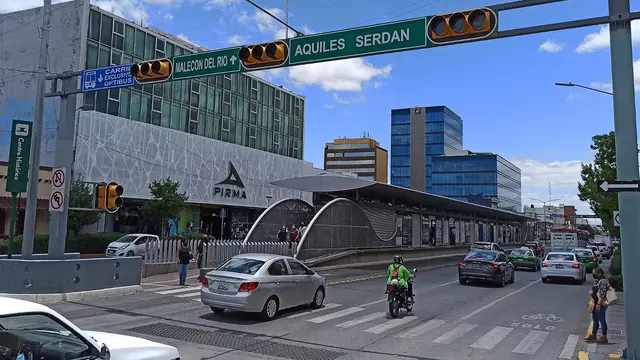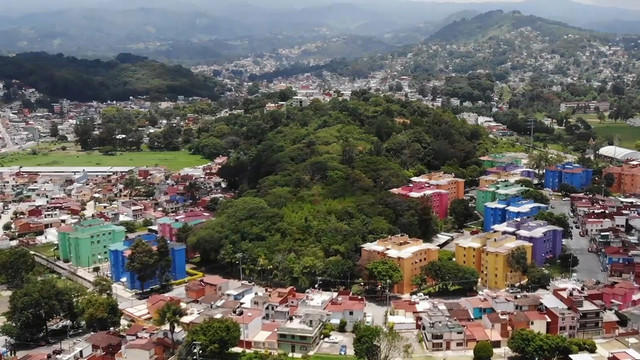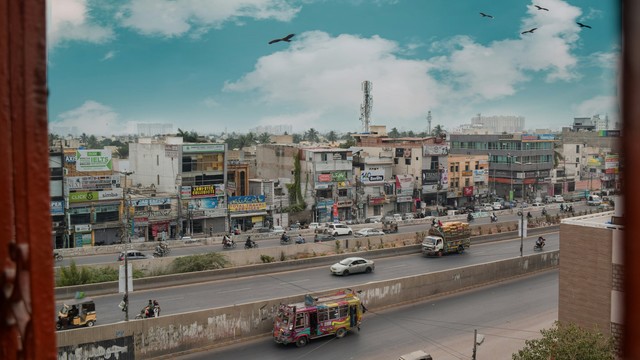Housing justice: securing affordable inner-city homes through retrofitting
This event on 22 March explored experiences of social movement-led retrofitting in Johannesburg, São Paulo and London.

Bertrams, Johannesburg (Photo: copyright ASK-UK)
Securing adequate and affordable housing in inner-city areas is crucial for human health and wellbeing, as well as advancing cities’ decarbonisation targets. Civil society groups and networks globally have been calling for more supportive conditions to retrofit and refurbish inner-city buildings in ways that advance housing and climate justice.
This IIED Debates event explored how civil society can drive engagements to rehabilitate and manage buildings for low-income groups. It focused on experiences from Johannesburg (South Africa), São Paulo (Brazil) and London (United Kingdom), and the opportunities and constraints to put this agenda into practice.
Rehabilitating and refurbishing buildings in inner-city areas for secure and affordable housing has the potential to reduce urban inequalities, as inner cities are vital for low-income groups to access livelihoods, opportunities, services and infrastructure. At the same time, re-using rather than demolishing mid- and high-rise buildings can reduce waste, promote a more circular built environment economy, and encourage low-emission urban development.
While the agenda of ‘retrofitting’ has gained traction in climate debates, it has rarely translated into practices that also focus on advancing housing justice. There are emerging experiences led by social movements that are pushing for retrofitting initiatives that advance the right to adequate housing for low-income groups.
At this IIED Debates event, experiences and reflections were shared from legal and built environment practitioners working with organisations involved in the struggles to rehabilitate inner-city buildings in ways that secure the right to adequate housing for low-income groups. These include SERI (Socio-Economic Rights Institute) and 1to1 – Agency of Engagement in Johannesburg, LabJuta in São Paulo, and Public Interest Law Centre (PILC) in London.
Drawing on examples, the speakers:
- Reflected on the opportunities and challenges they have faced in practice
- Debated the type of policy and planning frameworks needed to advance this agenda, and
- Explored the roles that residents, community organisations and supporting NGOs can play in improving housing conditions of buildings in inner-city areas.
About the speakers
- Alexandre Apsan Frediani (moderator) is a principal researcher at IIED and specialises in issues around human development in cities of the global South
- Lauren Royston is the director of Socio-Economic Rights Institute (SERI)
- Sifiso Mtimunye is a project manager and technical specialist at 1to1 – Agency of Engagement, South Africa
- Ricardo Moretti is a visiting professor at Universidade de Brasília and member of Labjuta (Laboratório de Justiça Territorial) of the Federal University of ABC, São Paulo, Brazil
- Saskia O'Hara is a legal caseworker and community legal organiser at Public Interest Law Centre (PILC)
- Beatrice De Carli is a reader of urbanism at London Metropolitan University and managing associate of ASF-UK
Event coverage
You can watch a recording of the event below or on IIED's YouTube channel, where individual links to the start of each speaker's contribution are also provided.
About IIED Debates
This event was part of the IIED Debates series. Through the convening of expert speakers and external stakeholders, IIED brings together an international community to discuss critical issues.
IIED Debates encompass both physical and digital events, including critical themes, breakfast debriefs and webinars. These events are public and are hosted regularly throughout the year online and when possible in our London and Edinburgh offices.
IIED events newsletter
Sign up to our mailing list for updates and invitations to events throughout the year, including webinars, critical themes and debriefs.
Contact
Juliette Tunstall (juliette.tunstall@iied.org), internal engagement and external events officer at IIED



